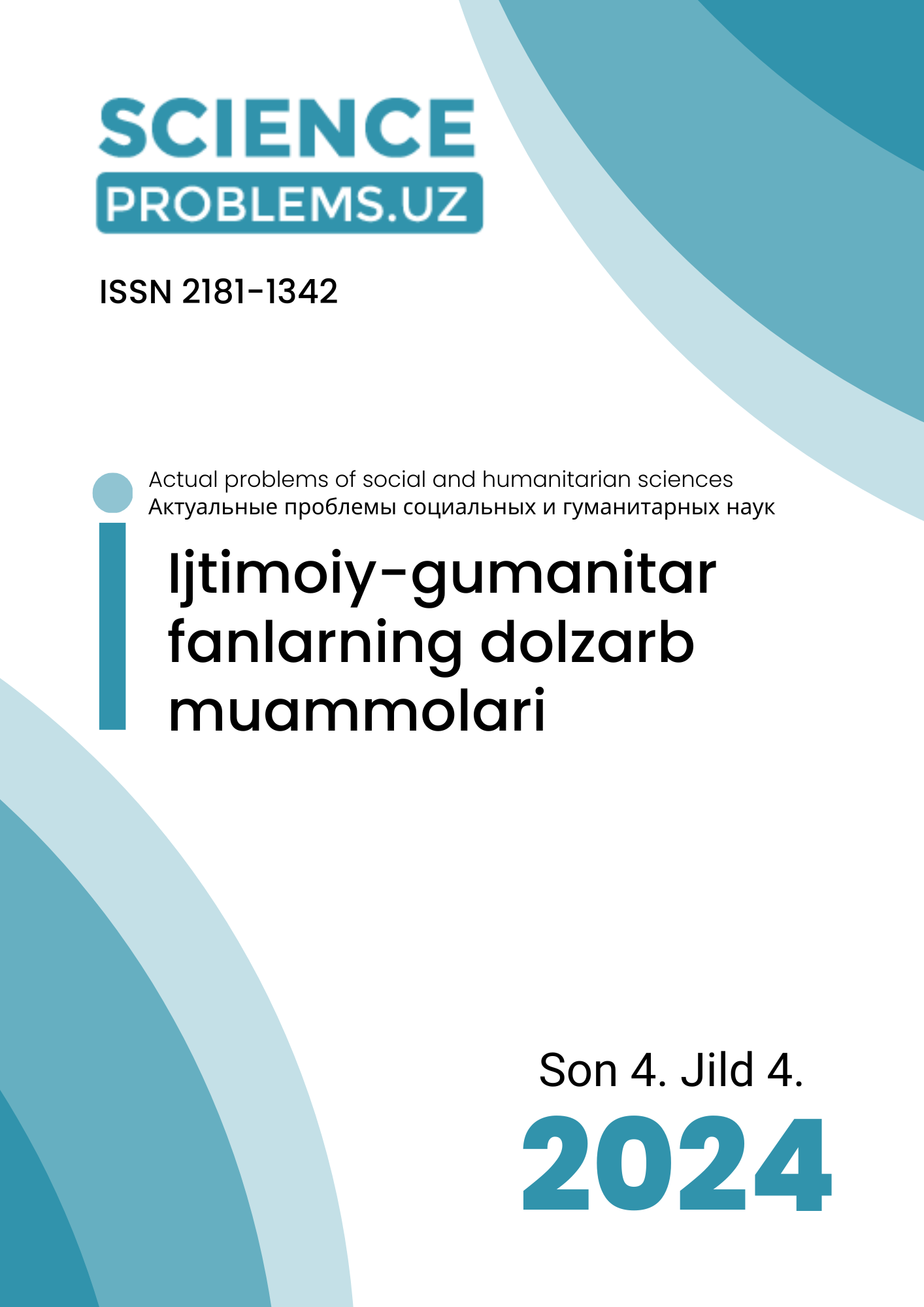СОЦИАЛЬНЫЕ АСПЕКТЫ ФОРМИРОВАНИЯ СОВРЕМЕННОЙ МОЛОДЁЖИ
Kalit so'zlar
https://doi.org/10.47390/SPR1342V4I4Y2024N24Kalit so'zlar
общество, молодежь, социализация, ценности, воспитание, традиции, образование.Annotasiya
Данная научная статья раскрывает проблемы влияние социальных явлений на формирования воспитания молодёжи. Статья рассматривает различные факторы социализации, его феномен и его влияние на формирование воспитания. Раскрыт вопрос становления индивидуальности посредством раскрытия значимости воспитания. Как никогда раньше, молодое поколение сталкивается с вызовами, которые требуют особых знаний и навыков для успешной адаптации, и развития в обществе. Анализ воспитания как ключевого процесса формирования личности подчеркивает значимость роли, которую играют семья, образовательные учреждения и общество в целом.
Manbalar
Durkheim: Essays on Morals and Education / ed. by W.S.F. Pickering. Routledge & Kegan Paul, 1979. 214 p.
Турсунов, М. Б. (1993). Тенденции и национально-этнические особенности развития молодой семьи.
Tursunov, M. B. (2021). The ethical essence of civil society and the state. Asian Journal of Multidimensional Research, 10(10), 1253-1255.
Тurabova, S. (2023). Talabalarning eristik kompetentligini rivojlantirishda ilg ‘or horij tajribalarni implementatsiya qilish imkoniyatlari. Namangan davlat universiteti Ilmiy axborotnomasi, (7), 327-333.
Kattakulovna, T. S. (2023). The problem of scientific dispute in the philosophy of medieval muslim peoples and its influence on the development of modern thinking. scientific approach to the modern education system, 2(18), 1-5.
Турабова, С. К. (2023). Влияние современных технологий и социальных сетей на формирование молодёжи. International scientific journal of Biruni, 2(3), 132-137.








